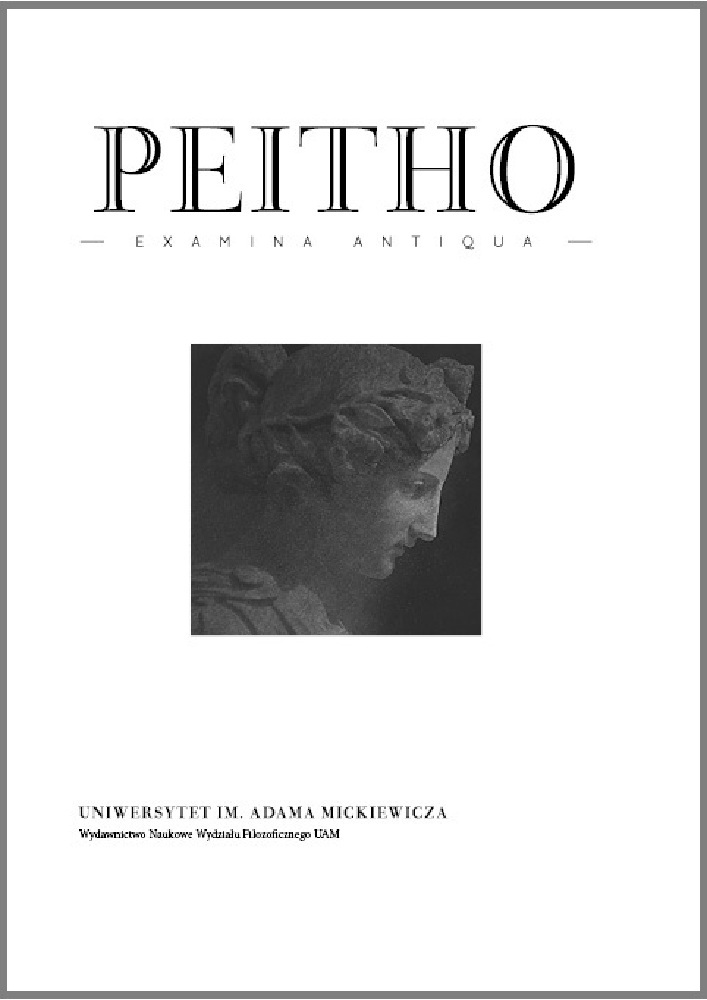Abstract
Zeno’s arguments are generally regarded as ingenious but downright unsound paradoxes, worth of attention mainly to disclose why they go wrong or, alternatively, to recognise them as clever, even if crude, anticipations of modern views on the space, the infinite or the quantum view of matter. In either case, the arguments lose any connection with the scientific and philosophical problems of Zeno’s own time and environment. In the present paper, I argue that it is possible to make sense of Zeno’s arguments if we recognise that Zeno was indeed a close follower of Parmenides, who wanted to show that, if the plurality of beings existed, then various absurd consequences would follow. He intended to highlight the compact and inarticulate nature of the being, and the human character of the system of world partitions producing the entities and the objects on which our knowledge is based.
References
Abraham, W. E., 1972, “The Nature of Zeno’s Argument against Plurality in DK 29 B 1”, Phronesis, 17(1), pp. 40–52.
Albertelli, P., 1939, Gli Eleati. Testimonianze e frammenti, Bari.
Allen, R. E., Furley, D. J., 1975, Studies in Presocratic Philosophy. Vol. II. Eleatics and Pluralists, New York.
Anton, J. P., Kustas, G. L., 1972, Essays in Ancient Greek Philosophy. Vol. I, Albany.
Antonopulos, C., 2011, An Infinity of Priorities. Eleatica 2008: Zenone e l’infinito, in: Barnes et al. (2011), pp. 121–134.
Barnes, J., 1979, The Presocratic Philosophers, (19822), London.
Barnes, J., 2011, “Zenone e l’infinito”, in: Barnes et al. (2011), pp. 37–118.
Barnes et al., 2011, Eleatica 2008: Zenone e l’infinito, (L. Rossetti, M. Pulpito ed.), Sankt Augustin.
Booth, N. B., 1957, “Were Zeno’s Arguments a Reply to Attacks upon Parmenides?”, Phronesis, 2 (1), pp. 1–9.
Calenda, G., 2011, Epistemologia greca del VI e V secolo a.C.. Eraclito e gli Eleati, Roma.
Calogero, G., 1932, Studi sull’eleatismo, (19772), Firenze.
Colli, G., 1964, Zenone di Elea, (E. Berti ed.), Milano.
Cordero, N. L., 1988, « Zénon d’Élée, moniste ou nihiliste? » La Parola del Passato, 43, pp. 100–126.
Cordero, N. L., 2004, By being, It Is: the Thesis of Parmenides, Las Vegas.
Cordero, N. L., 2011, «Commentaire à propos du Zénon de Jonathan Barnes», in: Barnes et al. (2011), pp. 141–144.
Curd, P., 1998, The legacy of Parmenides, (20042), Princeton.
Curd, P., Graham, D. W., 2008, The Oxford Handbook of Presocratic Philosophy, Oxford.
Dumont, J.-P., 1988, Les Présocratiques, Paris.
Fano, V., 2012, I paradossi di Zenone, Roma.
Fränkel, H., 1942, “Zeno of Elea’s Attacks on Plurality”, American Journal of Philosophy, 63, pp. 193–206.
Furley, D. J., 1967, Two studies in the Greek Atomists, Princeton.
Gomperz, T., 1896, Griechische Denker, Leipzig.
Hasper, P. S., 2006, “Zeno Unlimited”, Oxford Studies in Ancient Philosophy 30, pp. 49–85.
Hülsz Piccone, E., 2009, Nuevos Ensayos Sobre Heráclito, Mexico.
Laks, A., Louguet, C., 2002, Qu’est-ce que la Philosophie Présocratique? Lille.
Laraudogoitia, J. P., 2011, “Supertasks”, The Stanford Encyclopedia of Philosophy, http://plato.stanford.edu/archives/spr2011/entries/spacetime-supertasks/.
Lee, H. D. P., 1936, Zeno of Elea, Cambridge.
Long, A. A., 1999, The Cambridge Companion to Early Greek Philosophy, Cambridge.
Makin, S., 1982, “Zeno on Plurality”, Phronesis 27, pp. 223–238.
Mansfeld, J., 1982, “Digging up a Paradox: A Philological Note on Zeno’s Stadium”, Rheinsches Museum 125, pp. 1–24 (repr. in: Mansfeld 1990: 319–342).
Mansfeld, J., 1990, Studies in the Historiography of Greek Philosophy, Assen.
Mckirahan, R., 1994, Philosophy Before Socrates, Indianapolis.
Mckirahan, R., 1999, “Zeno”, in: Long (1999), pp. 134–158.
Mckirahan, R., 2002, « La dichotomie de Zénon chez Aristote », in: Laks, Loguet (2002), pp. 465–496.
Osborne, C., 2009, “If all things were to turn to smoke, it’d be the nostrils would tell them apart” or Heraclitus on the pleasures of smoking, in: Hülz Piccone (2009), pp. 415–441.
Owen, G. E. L., 1958, “Zeno and the Matematicians”, Proceedings f the Aristotelian Socety. LVIII, pp. 199–222 (repr. in: Salmon 1970: 139–163).
Palmer, J., 1999, Plato’s Reception of Parmenides, Oxford.
Palmer, J., 2009, Parmenides & Presocratic Philosophy, Oxford.
Palmer, J., 2012, “Zeno of Elea”, Stanford Encyclopedia of Philosophy, http://plato.stanford.edu/entries/zeno-elea/
Pasquinelli, A., 1958, I Presocratici. Frammenti e testimonianze, Vol. 1. Torino.
Raven, J. E., 1948, Pythagoreans and Eleatics, Cambridge.
Rossetti, L., 2011, “Un filosofo senza filosofia”, in: Barnes et al. (2011), pp. 171–183.
Salmon, W.C., 1970, Zeno’s Paradoxes, (20012), Indianapolis.
Sedley, D., 2008, “Atomism’s Eleatic Roots”, in: Curd, Graham (2008), pp. 305–332.
Solmsen, F., 1971, “The Tradition about Zeno of Elea Re-Examined”, Phronesis 16, pp. 116–41.
Vlastos, G., 1971, “A Zenonian Argument Against Plurality”, in: Anton, Kustas (1972), pp. 119–144.
Zafiropulo, J., 1950, L’école éléate, Paris.
Zeller, E., 1892, Die Philosophie der Griechen in ihrer geschichtlichen Entwicklung, Leipzig.
License
Peitho provides immediate open access to its content on the principle that making research freely available to the public supports a greater global exchange of knowledge.
